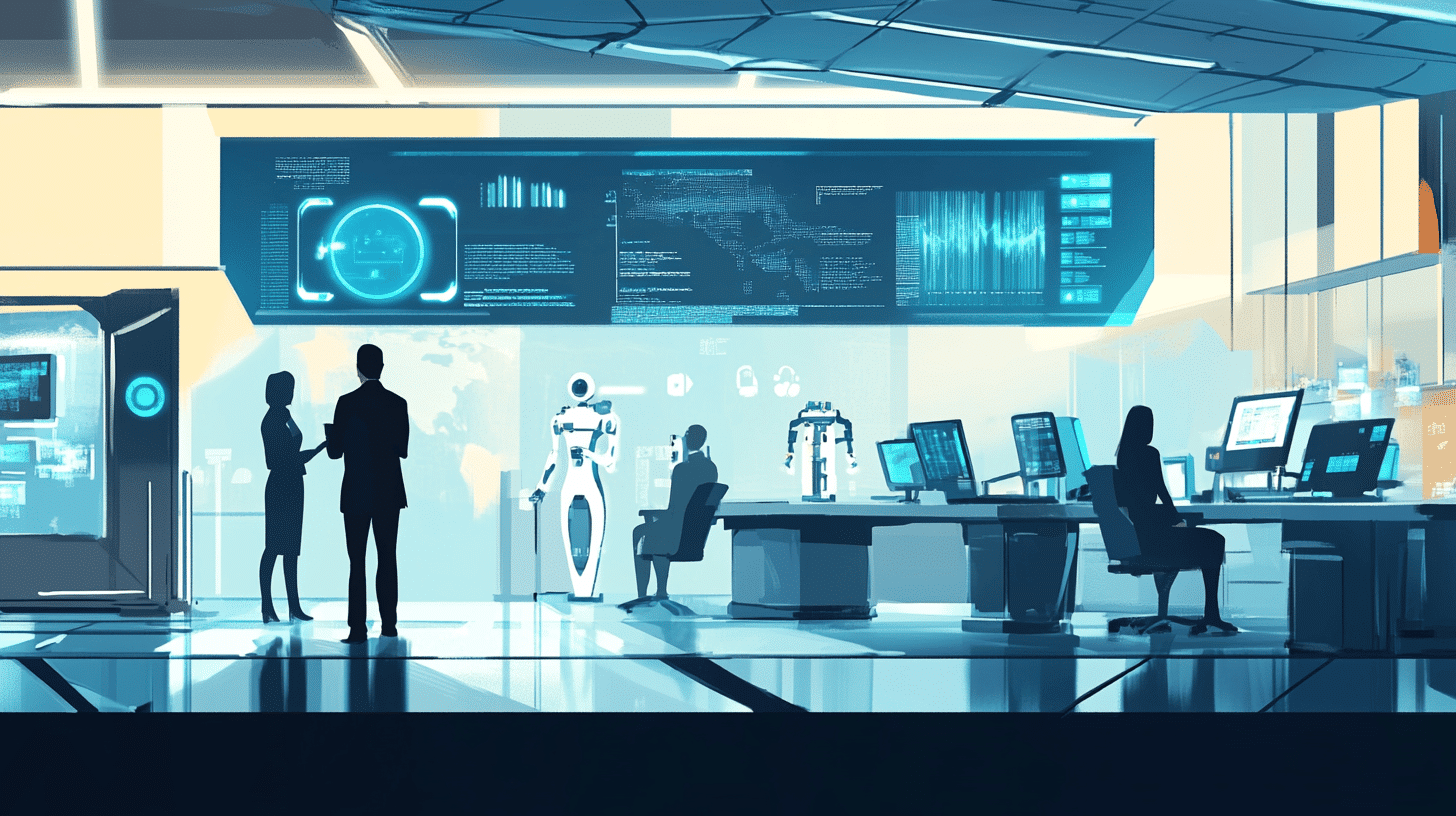In recent years, Artificial Intelligence (AI) has emerged as one of the most disruptive technologies in several industries, especially in the service sector. From chatbots to virtual assistants, AI is transforming the way businesses interact with their customers and optimize their operations. In this article, we will explore how AI is revolutionizing the service sector and the implications of this transformation.
What is Artificial Intelligence?
Artificial Intelligence refers to the ability of machines to perform tasks that normally require human intelligence. This includes learning from experience, understanding natural languages, recognizing patterns, and solving problems. Technologies such as machine learning, natural language processing (NLP), and computer vision fall under the umbrella of AI.
How is AI Being Used in the Service Sector?
1. Customer service: One of the most common applications of AI in the service industry is customer service. Companies across a variety of industries are using NLP chatbots to answer frequently asked questions, resolve issues, and even process orders. These virtual assistants are available 24/7, providing faster, more efficient service.
Data Analysis
: AI can analyze large volumes of data in real time, allowing companies to identify trends, customer behaviors, and areas for improvement. This allows them to personalize offers, optimize pricing, and improve the customer experience.
Demand Forecasting
: In the service sector, companies can use AI to predict demand based on historical data and seasonal variables. This is particularly useful in sectors such as tourism and hospitality, where it is crucial to adjust resources according to expected demand.
Process Automation
: Many repetitive and administrative tasks can be automated with AI. From inventory management to billing tasks, automation reduces errors and frees up employees to focus on more strategic activities.
Virtual Assistants in Times of Crisis
: During the COVID-19 pandemic, many businesses implemented virtual assistants to help meet customer needs during uncertain times. These assistants were able to provide real-time information about safety policies, operating hours, and product availability.
Benefits of Implementing AI in the Service Sector
– Operational Efficiency: With automation and data analysis, companies can operate more efficiently, reducing costs and increasing productivity. – Improved Customer Experience: AI enables greater personalization of customer service, where companies can offer solutions that are more aligned with consumer needs. – Data-Driven Decisions: The ability to analyze large volumes of data helps in making informed decisions, improving business strategy and results.
Challenges in Implementing AI
Despite the benefits, implementing AI in the service sector is not without its challenges: 1. Data Privacy: With the increasing use of AI, the handling of customer data becomes a greater concern. Businesses need to ensure they are compliant with privacy regulations such as GDPR.
Resistance to Change
: Many companies may face internal resistance to adopting new technologies. Proper training and demonstration of the benefits are often necessary to ease the transition.
Quality Data Dependency
: The effectiveness of AI depends on the quality of the data it uses. Outdated or incorrect data can result in poor decisions.
Ethical Considerations
: As machines become more capable of making decisions, ethical questions related to algorithmic bias and transparency are beginning to emerge. It is crucial that companies address these issues proactively.
Practical Examples of AI in Services
– Banking and Finance: Financial institutions use AI to detect fraud in real time, improving the security of financial transactions. Chatbots help customers manage their accounts and obtain information about financial products. – Hotel Sector: Hotels are implementing AI to automate check-ins and check-outs, as well as offer personalized recommendations based on guest preferences, creating a richer experience. – Electronic Commerce: E-commerce companies use AI to offer personalized product recommendations based on consumers' purchase history and browsing behavior, thereby increasing conversion rates.
Future of AI in the Services Sector
The future of AI in the service industry promises to be even more transformative. As technology evolves, we will see deeper integrations of AI into day-to-day operations. Augmented and virtual reality, combined with AI, are expected to deliver immersive experiences, such as interactive virtual tours or shopping simulations.
Additionally, the expansion of connected devices (IoT) will enable businesses to collect data in real time, further optimizing their operations. As consumers increasingly embrace AI, personalization and efficiency will become the norm in customer service.
Conclusion
Artificial Intelligence is undoubtedly revolutionizing the service industry, bringing efficiency, cost savings, and a better customer experience. While there are challenges to overcome, the opportunities for companies that embrace this technology are vast. Staying ahead of AI trends not only prepares companies for the future, but also improves their competitiveness in the market. Are you ready to embrace AI in your business or career? Leave your comments below and share your experiences with the technology!



